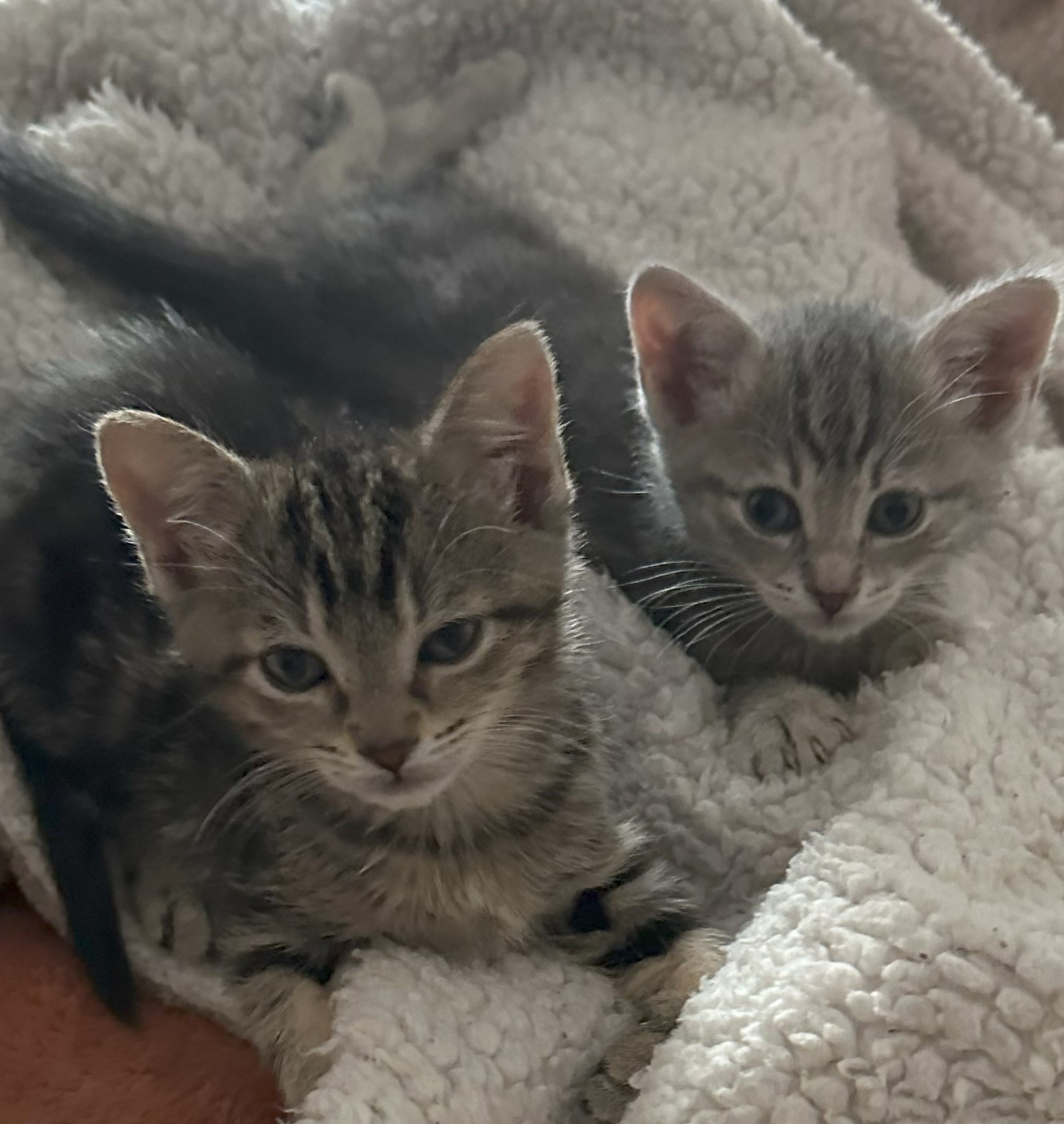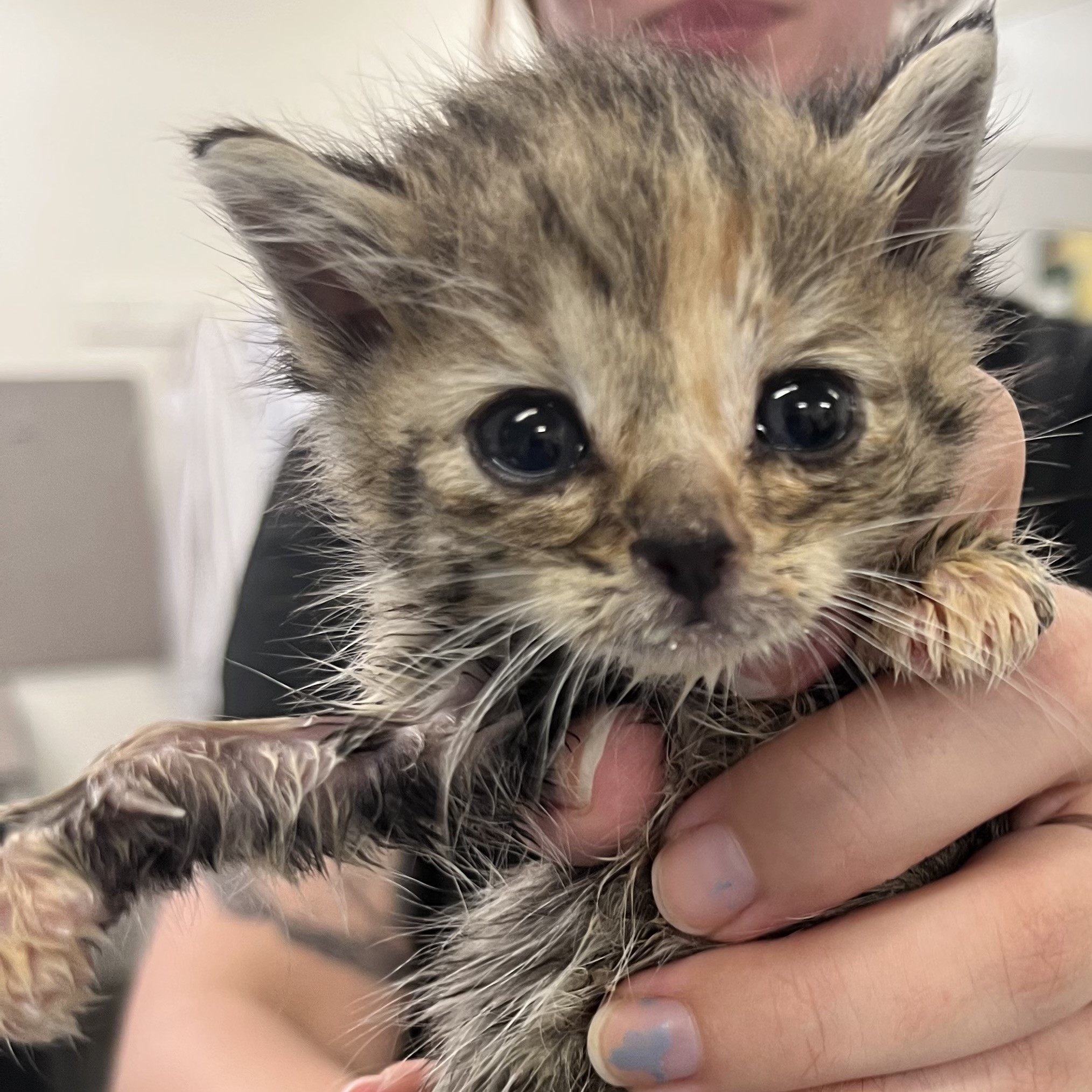This is the time of year when everyone is thinking about summer vacations, school graduations and the longest day of the year. It's also the time of year we call "kitten season". It sounds sweet, cute and fluffy but it's not; not when you see it from our side of the shelter.
Starting in June and continuing well into the fall, our intake numbers climb each week; largely due to an increased number of cats and kittens. At the beginning of June, we had less than 200 animals in care. Today, June 21, 2024, we have 235. By July, we'll likely be over 250 which is our "red alert" number; the number at which we stop accepting "optional" intakes like owner surrenders or transfers.
When we explain this situation to members of the public, the two most asked questions are, "Why does it happen now?" and, "Why so many cats?"
The "why now" part is a matter of biology. Cats are genetically predisposed to procreate the first spring after they're born. Females from four months to one year old, normally enter heat in late winter after they are born and unless they're spayed, heat recurs late winter through fall, each year. With a gestation period of two months, that means hundreds of kittens are born in April or May and enter our system beginning in May or June; continuing through to November or December. That answers the "why now?" question. The "why so many" question is a bit more complex and much more frustrating.
It's an accepted fact that the population of every North American animal shelter is a ratio of 70:30, cats to dogs. In 2023 we took in 948 cats and 340 dogs. When I share this information with members of the public the logical follow up question is, "Why so many cats?"
The sad and frustrating answer is that our society places a higher value on dogs as opposed to cats. The example I often use to illustrate this point is a simple hypothetical. Let's say someone lives in Downtown Kingston and they own a 2-year-old Golden Retriever. Would they open their front door and let that Golden just wander the neighbourhood? Extremely unlikely. Why? Because the dog could get injured, lost or even stolen. Let's say that same Downtown Kingston family has a lovely 2-year-old brown Tabby. What's the likelihood that the Tabby is given free reign to spend its day wandering the neighbourhood? We all know that answer - the likelihood is much higher. Is the family still worried about the cat's welfare? Probably, but not to the same degree as they are about the dog. Once again, we're asking and the public is asking, why is that? The answer to that question is the one that hurts the most. A significant portion of our society views cats as "disposable." I have two cats at home, Manny and Rosie. As I write this, Manny is currently sitting on my lap and purring like a Harley Davidson. I love both my cats like members of the family and if we lost them, I would be heartbroken. Considering them "disposable" on any level, turns my stomach but sadly the intake numbers in our community support that description.
In addition to this notion or perhaps as a direct result of it, cats are also often left unaltered. That means when they are out wandering, they're very likely making more cats and with a two-month gestation period, they're doing it pretty quickly. When the kittens inevitably arrive on our doorstep, whether they're found as strays or they're simply abandoned after an unplanned pregnancy, they require a ton of care in order to survive. Often, they come to us without a mother and in desperate need of bottle or tube-feeding. If they have been weaned, they're just as likely to be flea-ridden, exposed to fatal or contagious diseases or just plain terrified. It can take months to return them to health and prepare them for adoption.
That's why the Kingston Humane Society maintains that your cat should be spayed or neutered and that all cats should be indoor cats. The only exceptions should be for barn cats, cats that are walked on a harness or cats that have access to a safe, outdoor "catio".
If people could begin to place the same value on cats as they do dogs, maybe "kitten season" could eventually become something we actually looked forward to.


